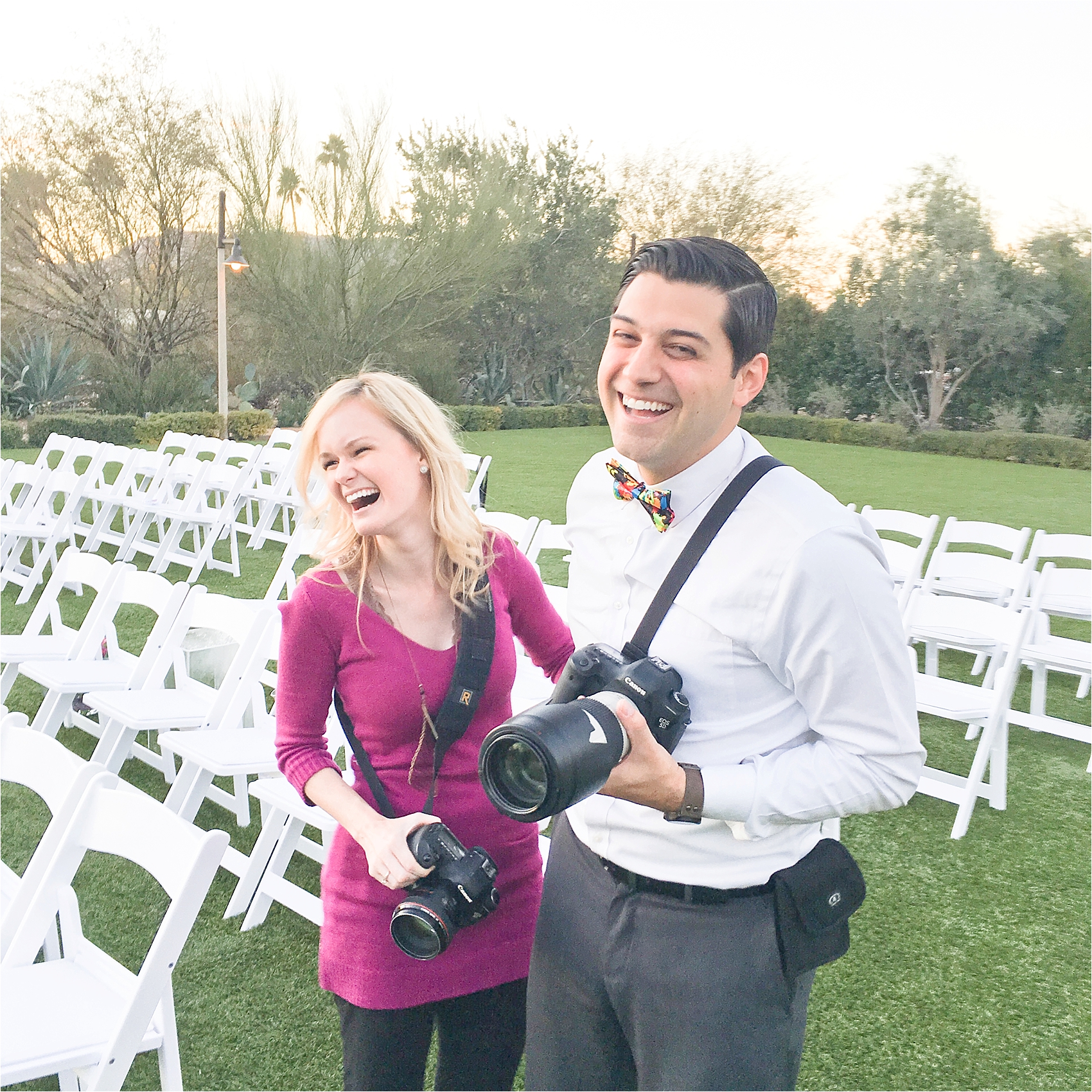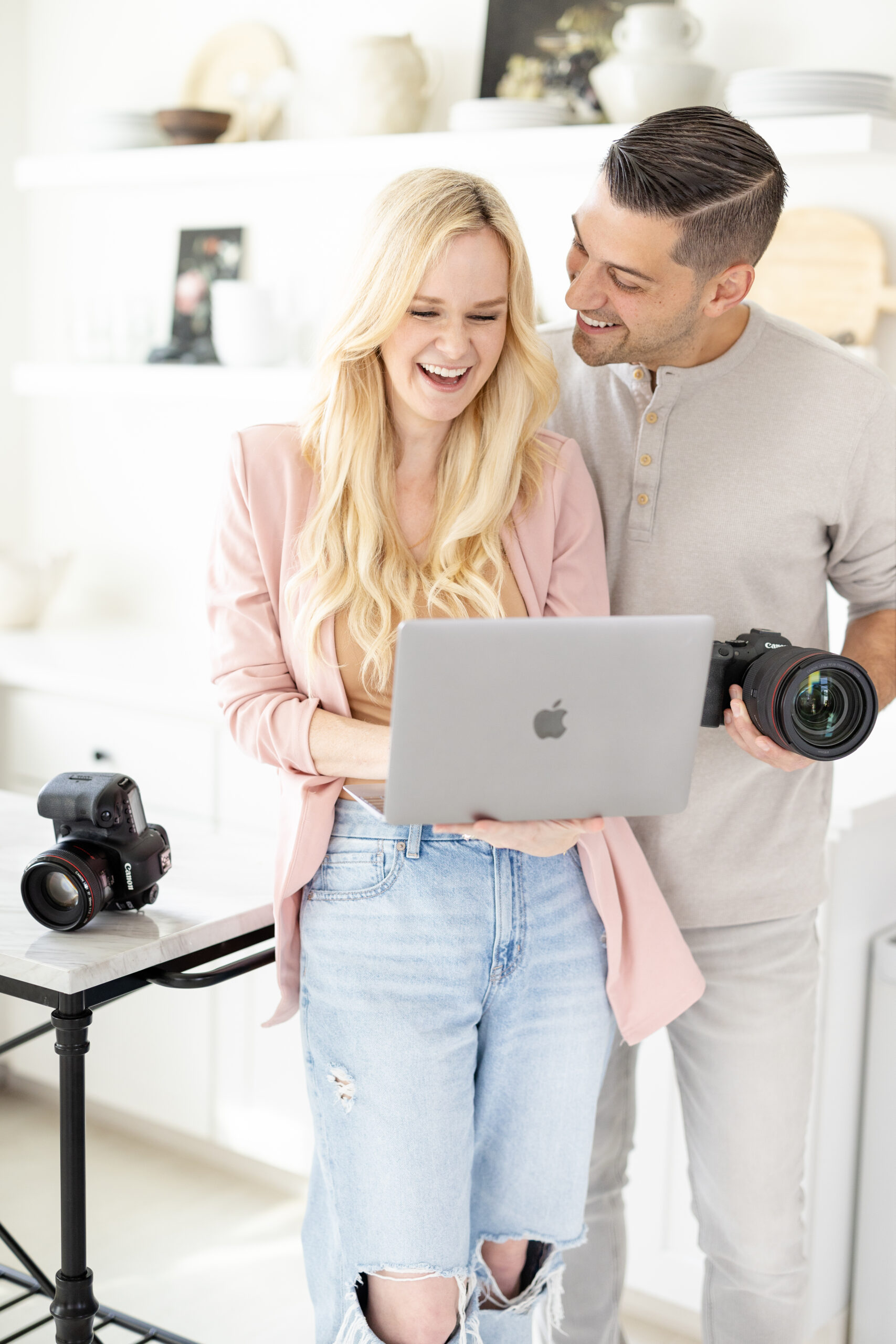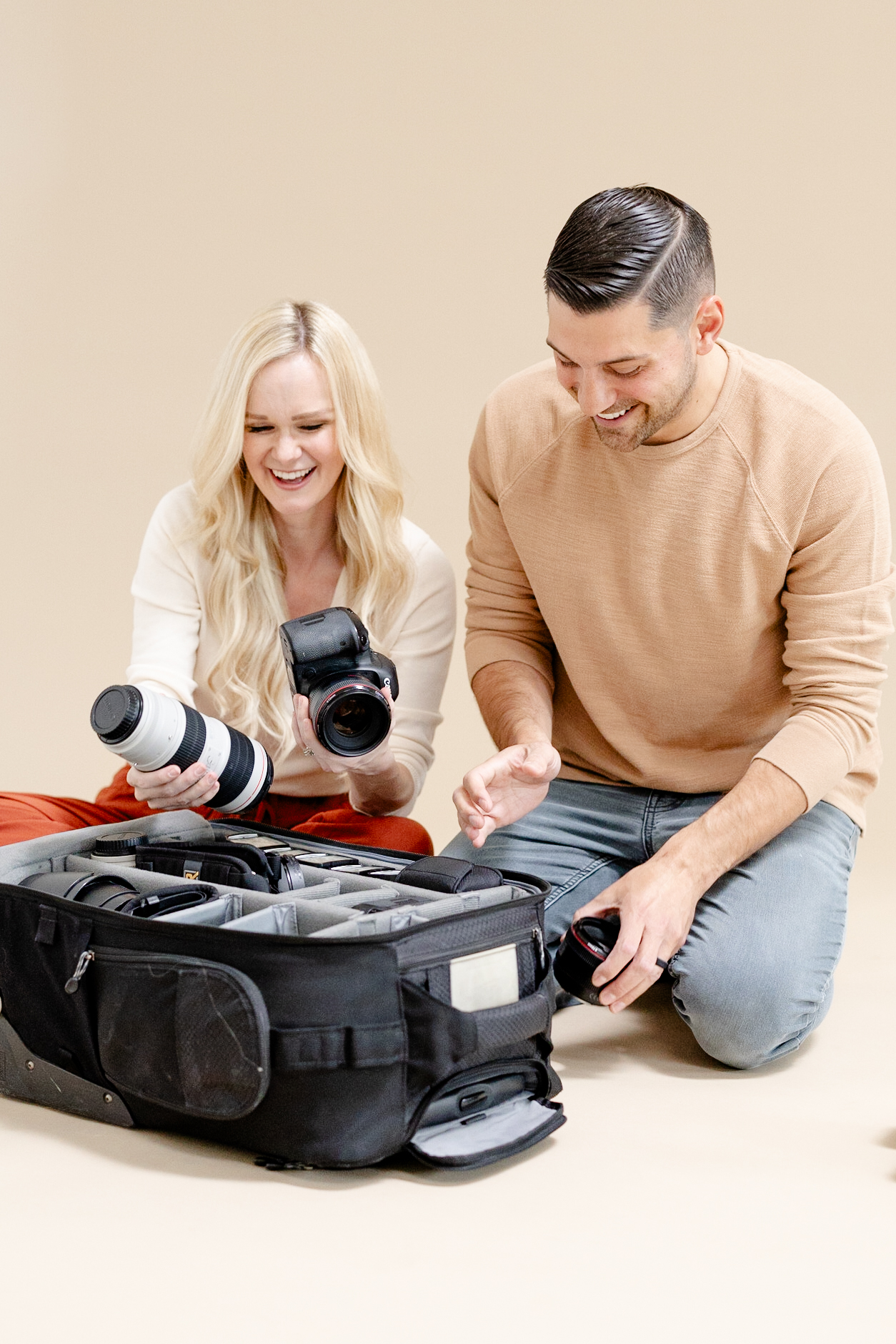There we were. In the middle of family portraits. On a wedding day. The bride in her white dress. The groom in his tuxedo. Family members (lots of them) waiting in the wings. Chatting. Laughing. Catching up. Chasing around little nieces and nephews who weren’t even aware a wedding was about to happen, and wiping down the faces of those they could catch. Wedding planners and hotel staff buzzing all around, draping linens over cocktail tables while bartenders lined up liquor bottles and organized the clear glasses to pour.
Then, there was us.
In the middle of it all.
Amy, organizing a family combination. Telling people (nicely and with a smile!) where to stand and what looks best on camera.
Jordan, standing a few feet away, camera locked and loaded, ready to shoot as soon as Amy stepped away. After all, we had a lot to get through, and the ceremony wasn’t far off.
If things went perfectly smooth and we didn’t have any hiccups, malfunctions or interruptions, we had just enough time to get through our list… and check it twice.
That’s when Uncle Bob walked in our life.
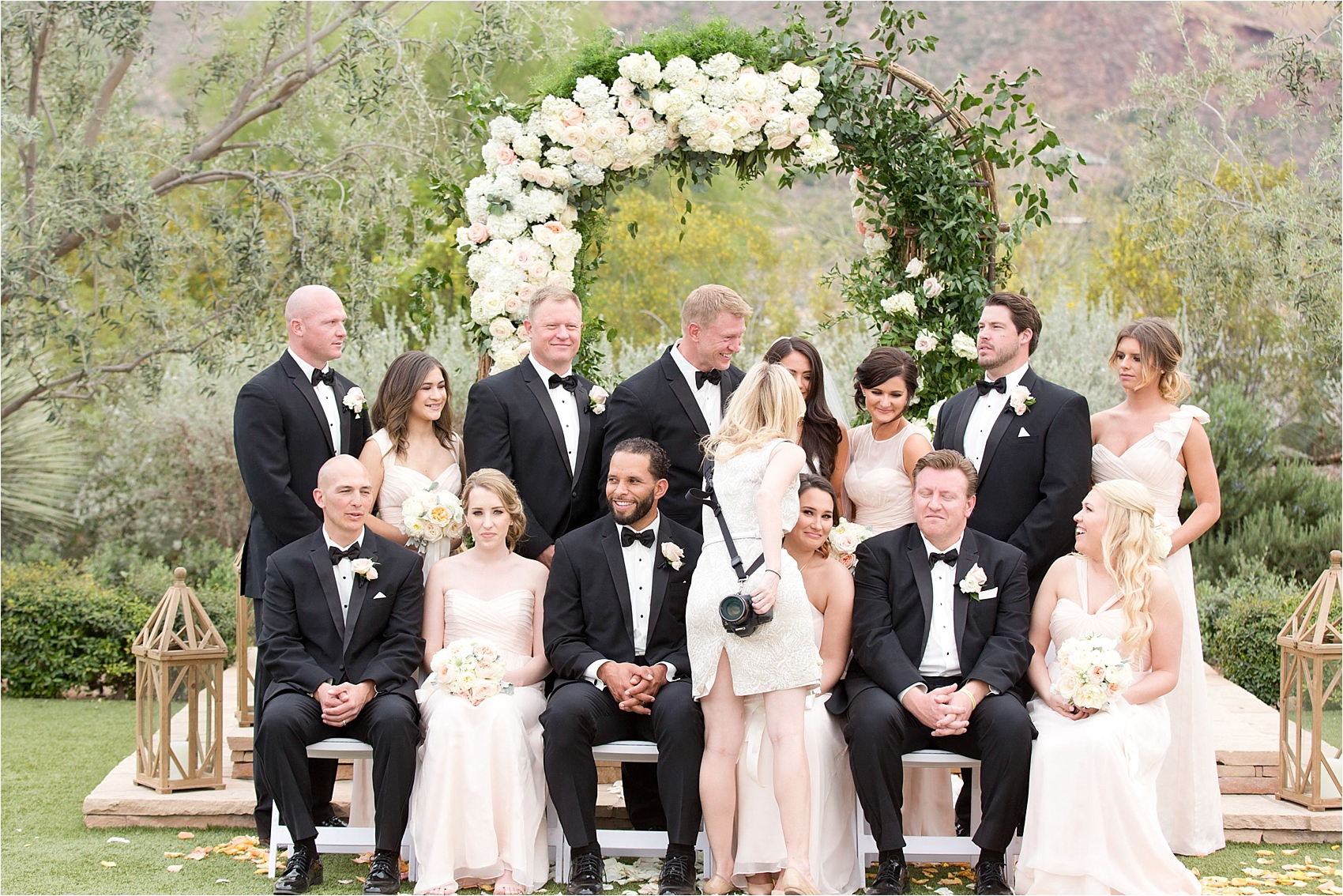
He was tall and thin. A little gangly. Mid fifties. Plaid dress shirt, transition lenses, and what appeared to be dress sandals. We’re still not quite sure.
And wrapped around his neck, like Michael Phelps wearing ALL of his gold medals on the Sports Illustrated cover, a camera strap. With a $3,000 body, a $2,000 lens and a passion for photographing.
Everything.
Everywhere he goes.
Including the wedding that, in that moment, we were hired to shoot.
More on that in a second. But, first, for those who’ve never heard of an “Uncle Bob” or seen one in the wild, let’s pause a second to define who he is.
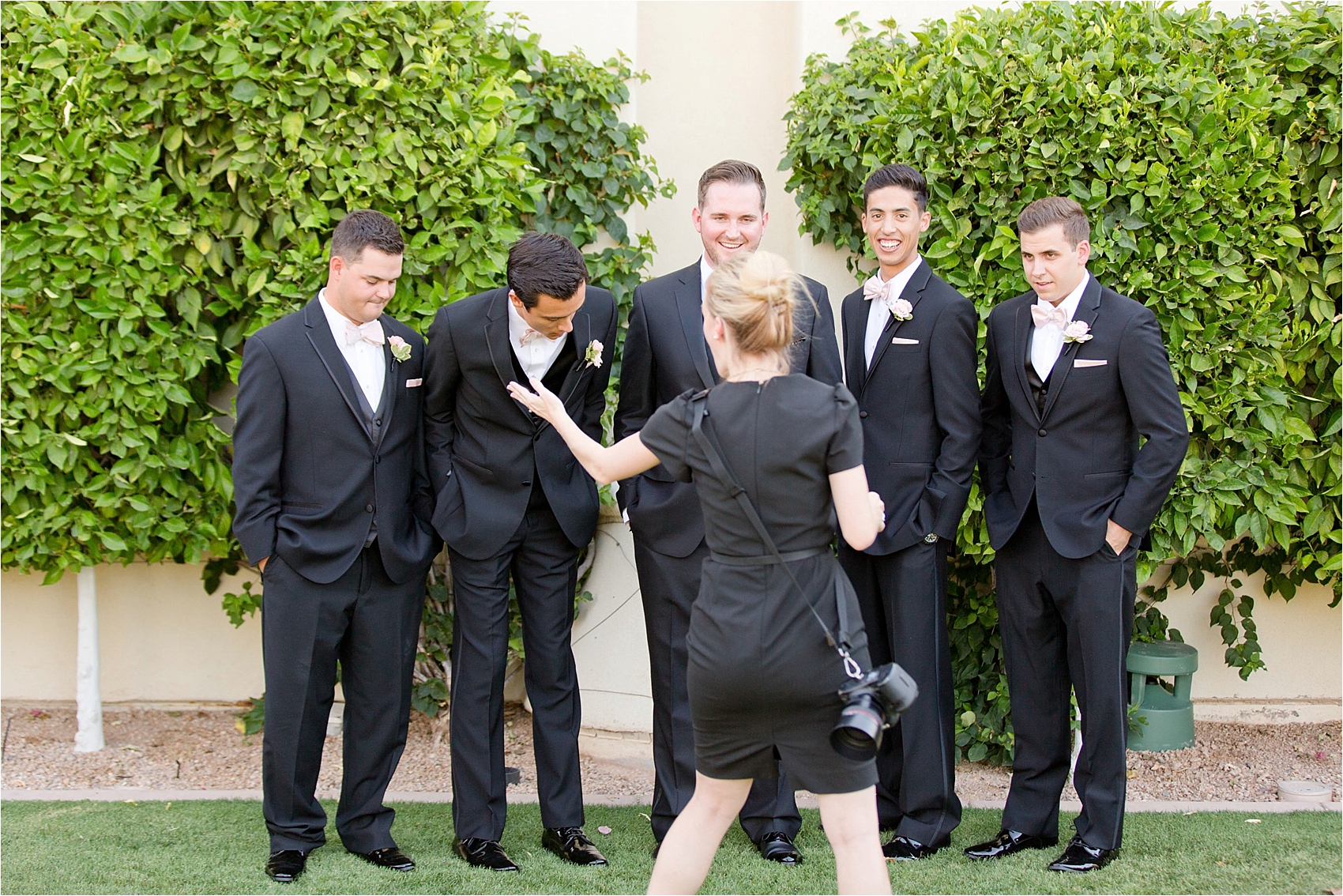
What is an Uncle Bob?
In the photography world (especially at weddings, but sometimes during portraits, too) an “Uncle Bob” is simply any person who wasn’t hired to shoot, but who’s shooting –– or possibly telling the person hired to shoot it, how to shoot it.
Uncle Bobs come in all shapes, sizes, genders and ages. From all backgrounds and walks of life.
Sometimes, it’s a sweet young friend (or even a bridesmaid) who just got a new Costco camera for Christmas… and she’s excited because this is her first chance to practice where there are people other than her kids (or dog) to photograph. Or one of your clients’ moms, who brings her camera to every family gathering, because she doesn’t want to miss single moment. Or a younger cousin, who’s taking a photography class at school and wants to try what she’s learned for the first time.
Some are (as the legend goes) distant uncles wearing Birkenstocks and safari hats to a black tie wedding.
For the sake of simplicity, let’s use “Uncle Bob” to describe everyone we’ve mentioned above. Plus, then for the rest of this post, we get to think about those sweet sandals. With socks.
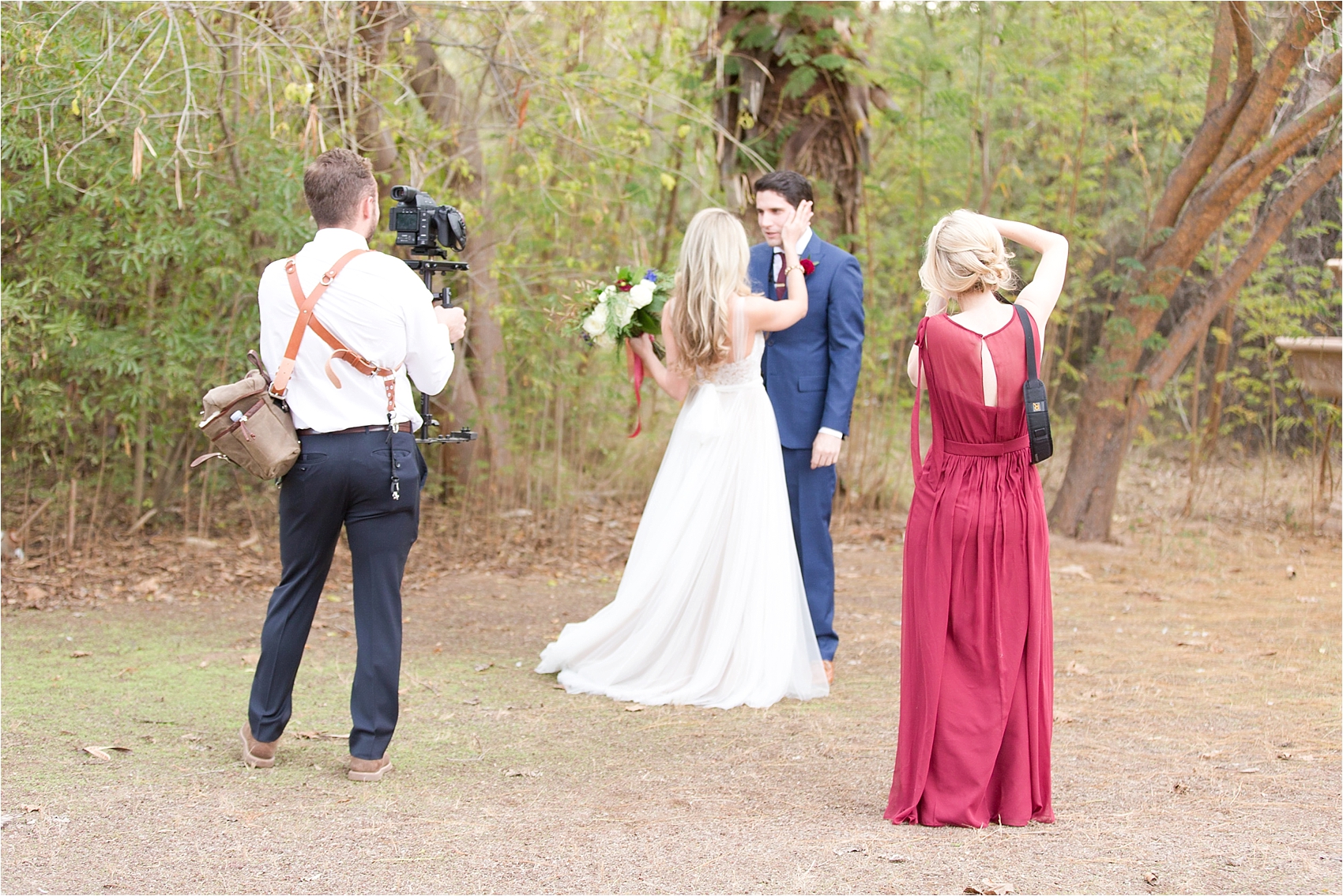
Sometimes, Uncle Bob stays in the background and you don’t even notice him, because what he’s doing isn’t affecting what you’re doing.
Oftentimes, though, Uncle Bob (at a minimum) distracts you, and (at worst) interferes with your work.
The reason we decided to address the “Uncle Bob” issue in the first place is because, quite honestly, we get asked about it. A lot.
We see hot debates online about it. A lot.
We hear negative ranting and venting about it. A lot.
And we see bad advice floating around that won’t solve the problem next time it happens. A lot.
Which mean it’ll keep happening to you. A lot.
In our career, we’ve photographed tons of portrait sessions and weddings with Uncle Bobs. All the Uncle Bobs. And, today, we’re here to empower you to love your clients well by setting healthy, respectful boundaries with Uncle Bob so you win, he wins and your clients win.
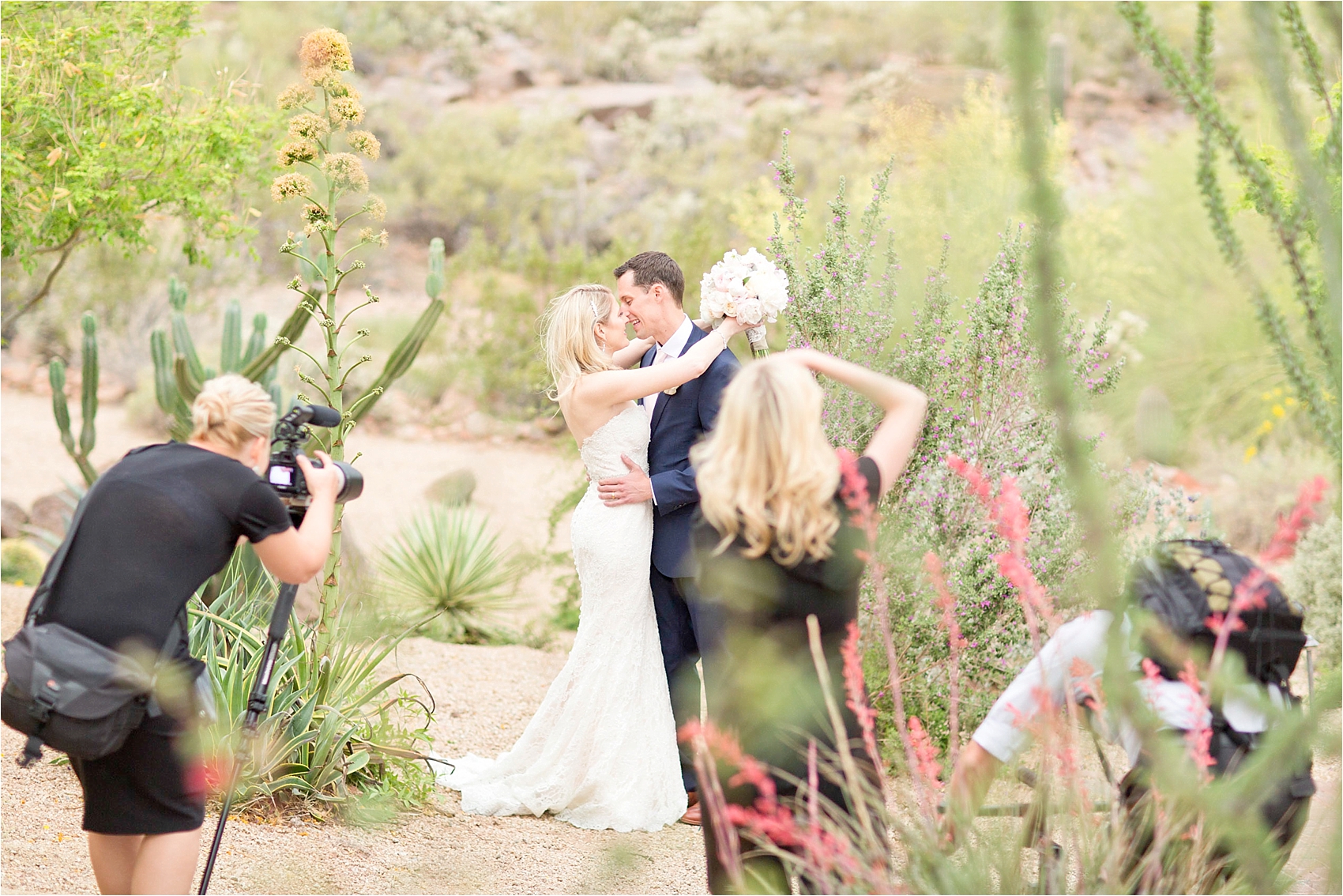
Uncle Bob can be really frustrating, right? We’re under a lot of pressure to deliver high quality work to our clients, and anyone interfering with that experience quickly feels like public enemy number one. But that attitude is going to get us nowhere. So let’s turn our indignation into empathy. After all, weren’t we all once a little bit like Uncle Bob, too?
Here are some things we need to remember…
1. Uncle Bob is IMPORTANT to our clients
The most important thing to remember when our instinct is to feel frustrated is that Uncle Bob is an important person to our client. Sometimes, in the hustle and bustle of a wedding day (because we’re so focused on “getting our shots” or doing “what we need to do”) we forget that our clients love Uncle Bob, whoever he or she may be; and Uncle Bob loves our clients. That’s why they’re running around with their camera like Seal Team Six members during the Osama Bin Laden raid.
It’s usually not that they think you’re incapable and need back up. It’s because, in their mind, the more the merrier! It’s a game of addition to the photos you’ll give your client, not subtraction. It’s why our families take iPhone pictures of themselves when we do our own family photos. It’s not that they think their photos are going to be better. It’s just, Why not?
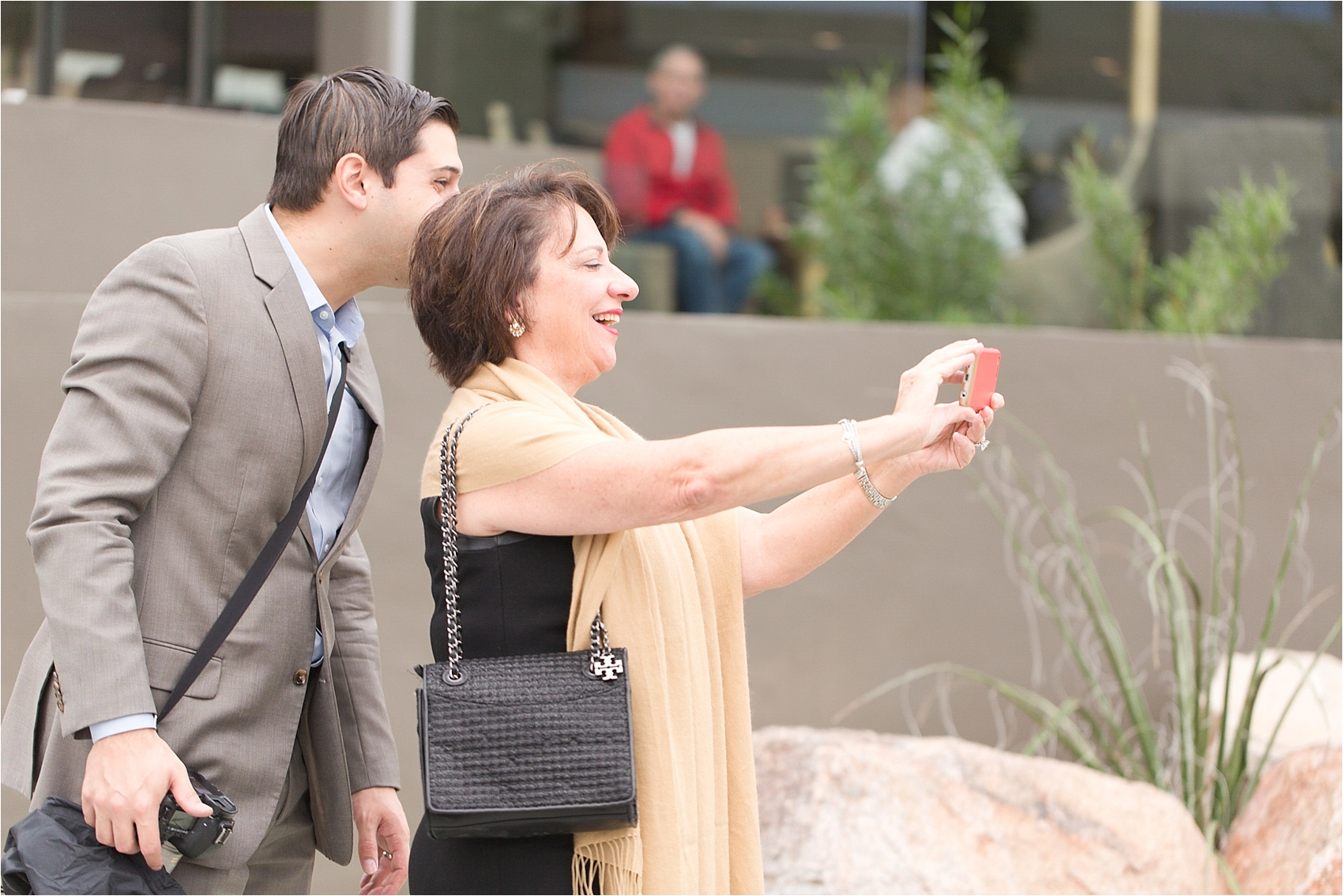
2. Uncle Bob is a person, too. And we’re not as different as we think.
When you’re a seasoned photographer, it’s easy to forget that there was once a time when you were too scared and insecure to call yourself a photographer. Think back to when you first got your camera. We remember when Amy got hers. She wanted to shoot everything that moved. All the time. People. Animals. You name it. And when there was nothing that was moving and Jordan couldn’t handle another round of, “Let’s go outside so I can practice on you. Pllleeeaaassseee!” She photographed things that didn’t move. Stuffed animals. Fake flowers. The list goes on and on.
Do you remember that feeling?
Sometimes, as experienced photographers, if we’re not all careful, we can make the mistake of looking down on newer or hobbyist photographers –– especially when it feels like they’re getting in our way.
Especially Uncle Bob.
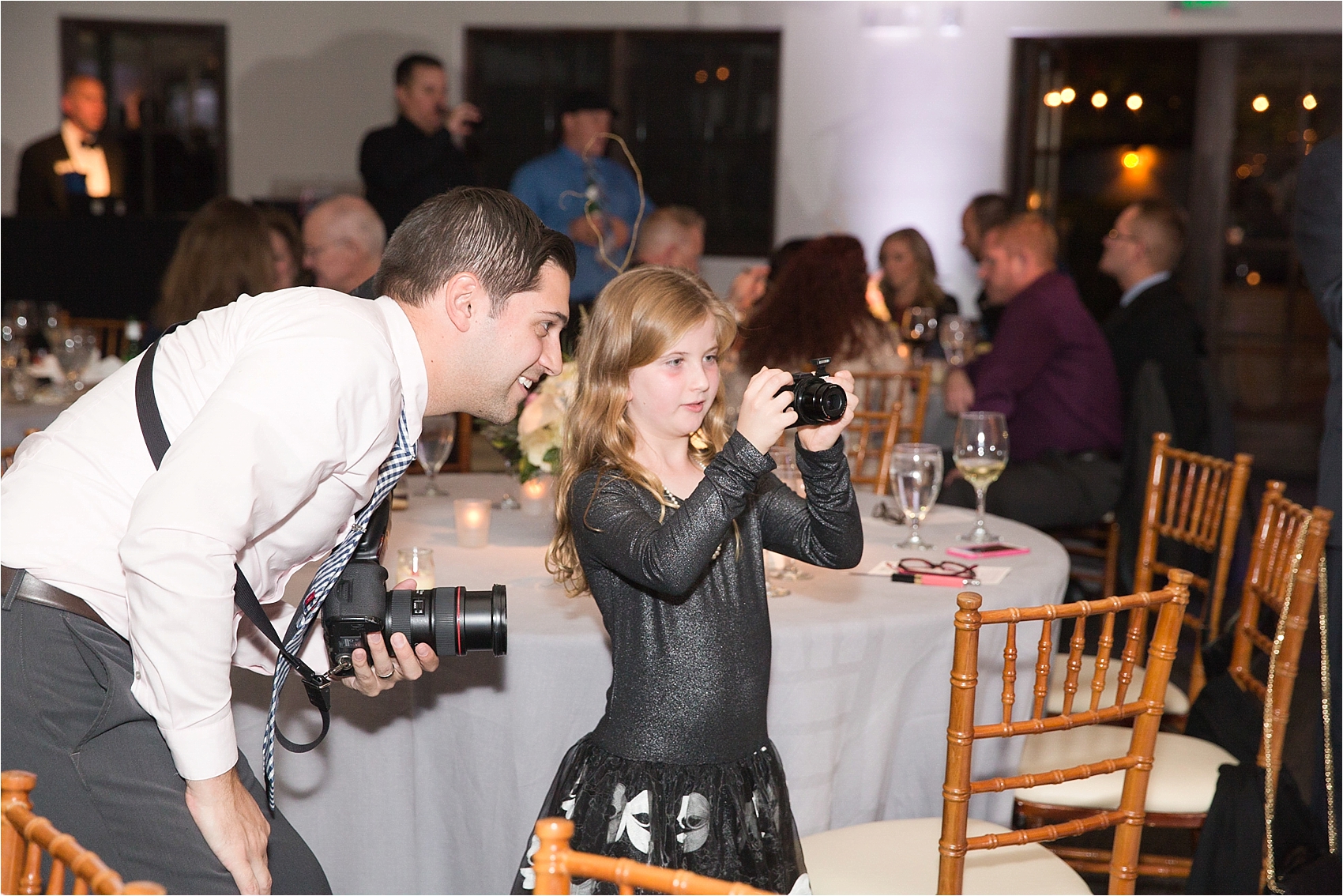
So we’d encourage you to think back to when you started. How excited you were. Not because we’re about to tell you that Uncle Bob is right and you should just let him do whatever he wants during a paid shoot that you’ve been contracted to do (and have a duty to perform at a high level) which is hard enough without Uncle Bob lurking around, asking you what you’re doing. Or worse, telling you what to do.
But to start with empathy. Because it’s scarce in today’s world.
Instead of seeing Uncle Bob and assuming the worst:
–– He doesn’t care about me.
–– He thinks he’s better than me.
–– He’s going to get in my way and ruin my shots.
–– He’s the enemy.
What if we started by assuming the best:
–– This is someone who loves photography, like me.
–– This is someone who loves my clients, like me.
–– This is someone whom my clients love, like me.
–– This is someone who wants the best for my clients, like me.
–– This is someone I should talk to, like I’d talk to me.
But What Do I Do in Awkward, Sticky Situations?
Now, let’s take a look at the three most common Uncle Bob sightings like salsa. From mild situations… to the ones where it’s like, Somebody save me! My mouth is on fire!
1. The Secret Sniper
The Secret Sniper is the Uncle Bob you don’t really see, but you know is there. He’s off to the side, or in the distance, or in a nearby tree. He’s around, but not in the way.
2. The Shoulder Stalker
The Shoulder Stalker is like the heavy breather in middle school. They’re so close, that even though you can’t see them and they’re not touching you, you can just feel them. It’s like the force. Sometimes, the boldest Shoulder Stalkers go full-on Shoulder-to-Shouler Sidekick. Like you’re Batman and they’re Robin. They’re shooting right alongside you. Asking you questions as they go. Thinking it’s the perfect time for “shop talk” about their newest lens.
The Shoulder Stalker usually views themselves as more of an accessory than the main event. To quote a famous Broadway musical, “Like a side dish. On a slightly smaller plate.” But occasionally they might even make a suggestion about how you’re shooting or posing, Hey, what do you think if we moved them over there? or Do you see that her dress is bunched? In rare cases, the Shoulder Stalker will even talk to the clients directly, like your pet parrot or Abu from Aladdin in this picture. He just wants to do what you do and be part of the action, too.
3. The Scary Sergeant
The Scary Sergeant is up. in. yo. business. Getting IN FRONT of your camera. Telling you what to do. Telling the clients what to do. Thinking he’s fixing everything and making it better when he’s really just slowing everything down. He’s not Robin or Abu, and doesn’t want to be. He thinks he’s Genie, the star and savior of the show. You think he’s Jafar (large cobra scene). And your clients probably agree with you, but don’t know what to say or, frankly, aren’t aware that it’s causing that much of a disruption or disturbance to you, because clients tend to lose track of time on wedding days and aren’t always thinking about all the things you are. That’s your job.
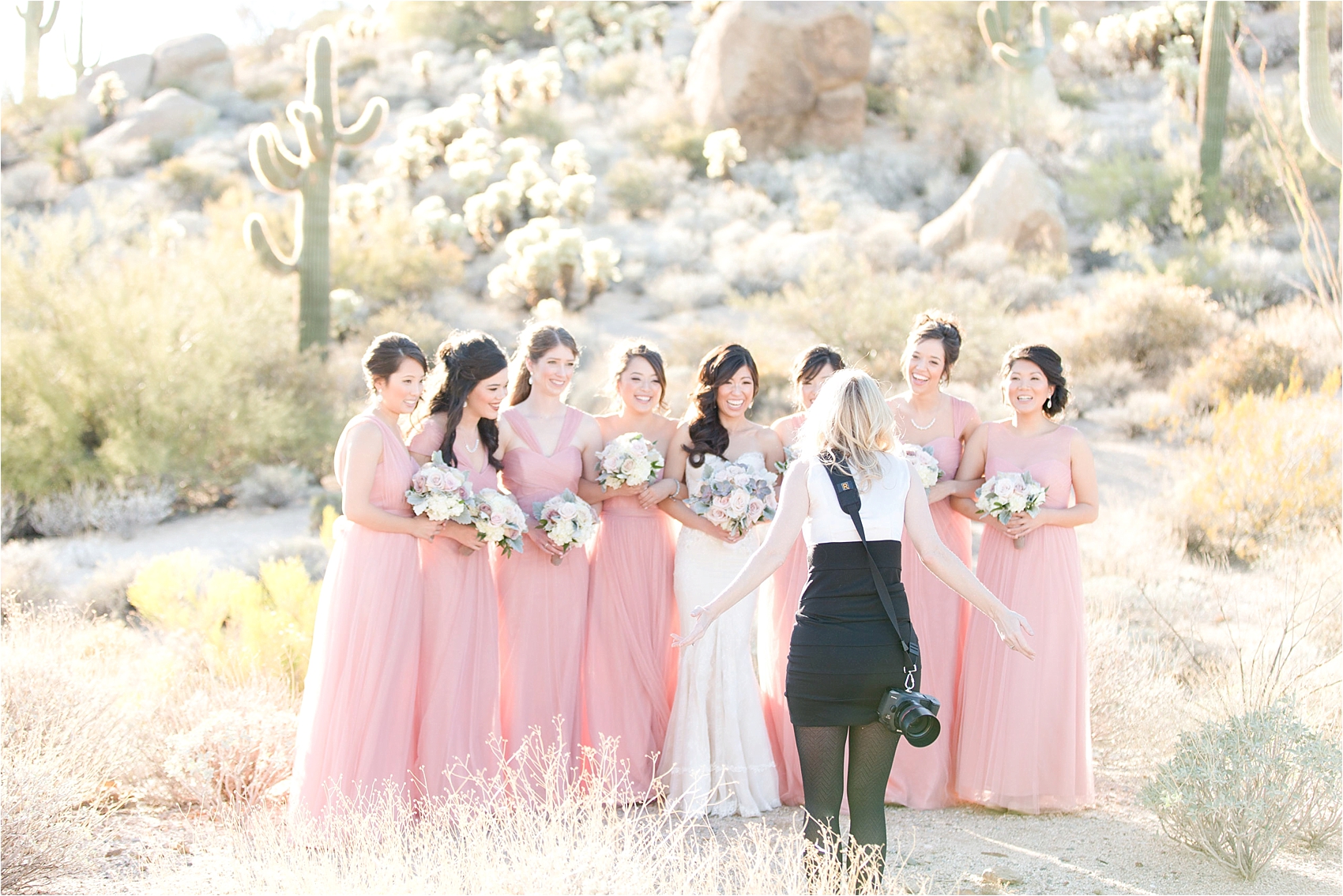
*The Solution*
First, before we give you the answer, let’s start with the premise: Uncle Bob is someone who loves photography, loves our clients and wants the best for them. Even if it doesn’t feel like it, this is a good-hearted, well-meaning and well-intentioned person who is excited to be around, be involved and be part of making the memories, but just doesn’t have the social awareness to see that they’re in the way.
Treat them with empathy. Treat them with respect.
Second, ask yourself, What’s the win? For us, it’s loving and serving our clients well by a) getting them the highest quality pictures and b) giving them the best possible experience. Which means loving and serving their Uncle Bob well, too.
ENTER PROBLEM: our egos. We all have them, to some extent. Anyone who says they don’t, self-evidently, does. It’s not a bad thing, always. After all, our egos are just our sense of self-esteem and self-importance. In the purest, healthiest sense, they drive us to look, do and be our best. Because we all like feeling good ourselves and important to others, especially in our professions.
So when the Scary Sergeant steps on our toes, we automatically get defensive, because we innately feel disrespected, because no matter what the Scary Sergeant is thinking, all we hear are his actions. You’re not good or important enough. And that stings, right? Because, as photographers, especially if we’re newer, we battle that monster in our head every day as it is. I’m a ph-ph-photographer. We don’t need someone to point it out and put salt in that wound.
Just like in life, though, if we don’t prepare our hearts in advance, we’ll react to someone instead of respond to them –– and that never gets us the two things we want in the first place: a) for us to get what we want and b) for the other person to still feel loved. So if we accept, in advance, that the next time Uncle Bob rears one of his three heads at a session we’re shooting or wedding we’re on, we do four things:
1. Have empathy.
2. Don’t take it personally.
3. Keep the goal in mind.
4. Don’t react. Instead, respond.
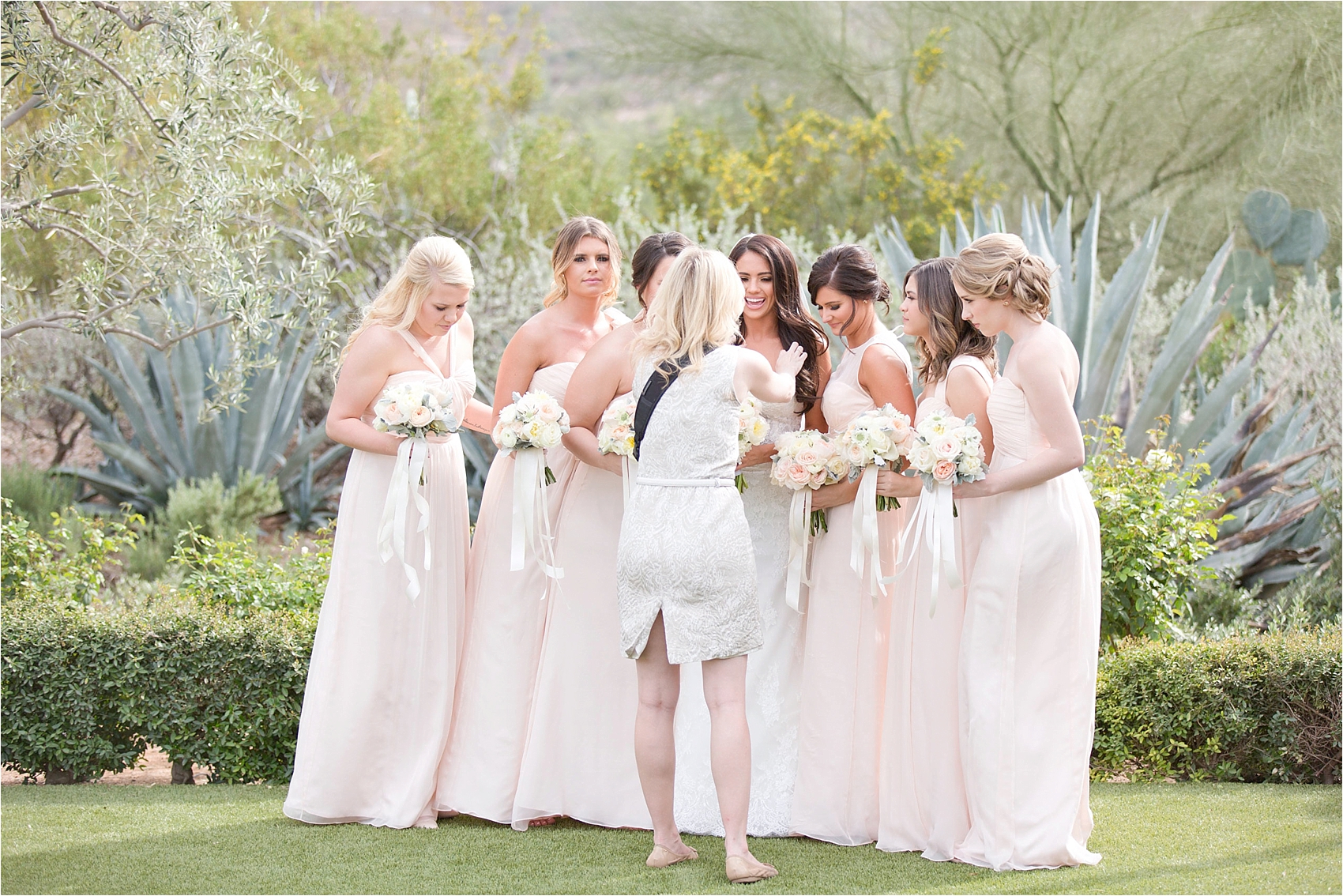
How to respond…
Step #1: Minimal Pressure, Maximum Outcome
Our goal should be effectiveness: achieving your goal with the least invasive method. The least amount of pressure. It’s trying the laparoscopic procedure first, not open heart surgery. If you’re trying to lose one pound, it’s cutting out the extra scoop of ice cream you have every night before bed before you swear off all sugar forever.
Or with your kids, for example. If you want them to take out the trash, you ask nicely, “Johnny, would you please take out the trash?” Not nuclear right out of the gates, “JOHNNY! TAKE OUR THE TRASH RIGHT NOW OR I’M SENDING YOU TO MILITARY BOARDING SCHOOL!”
See the difference?
This really comes down to emotional intelligence (a.k.a. people skillz. with a “z.” because that’s how we roll). If persuasion was a scale, with zero being asking Johnny nicely and ten being military boarding school, always start at the bottom of the scale and work your way up.
Here’s why…
The lower on the scale you are, the better chance you have of getting what you want without any conflict; the higher you go on the scale, the more risk you have for a blow up that could cause an explosion in the moment and aftershocks well beyond. Hence, the nuclear analogy.
So, let’s play that out. Say you’re at a wedding, in the middle of portraits or some other portion of the day, and Uncle Bob starts being Uncle Bob.
Stop, and think about your scale.
0 = Least Pressure
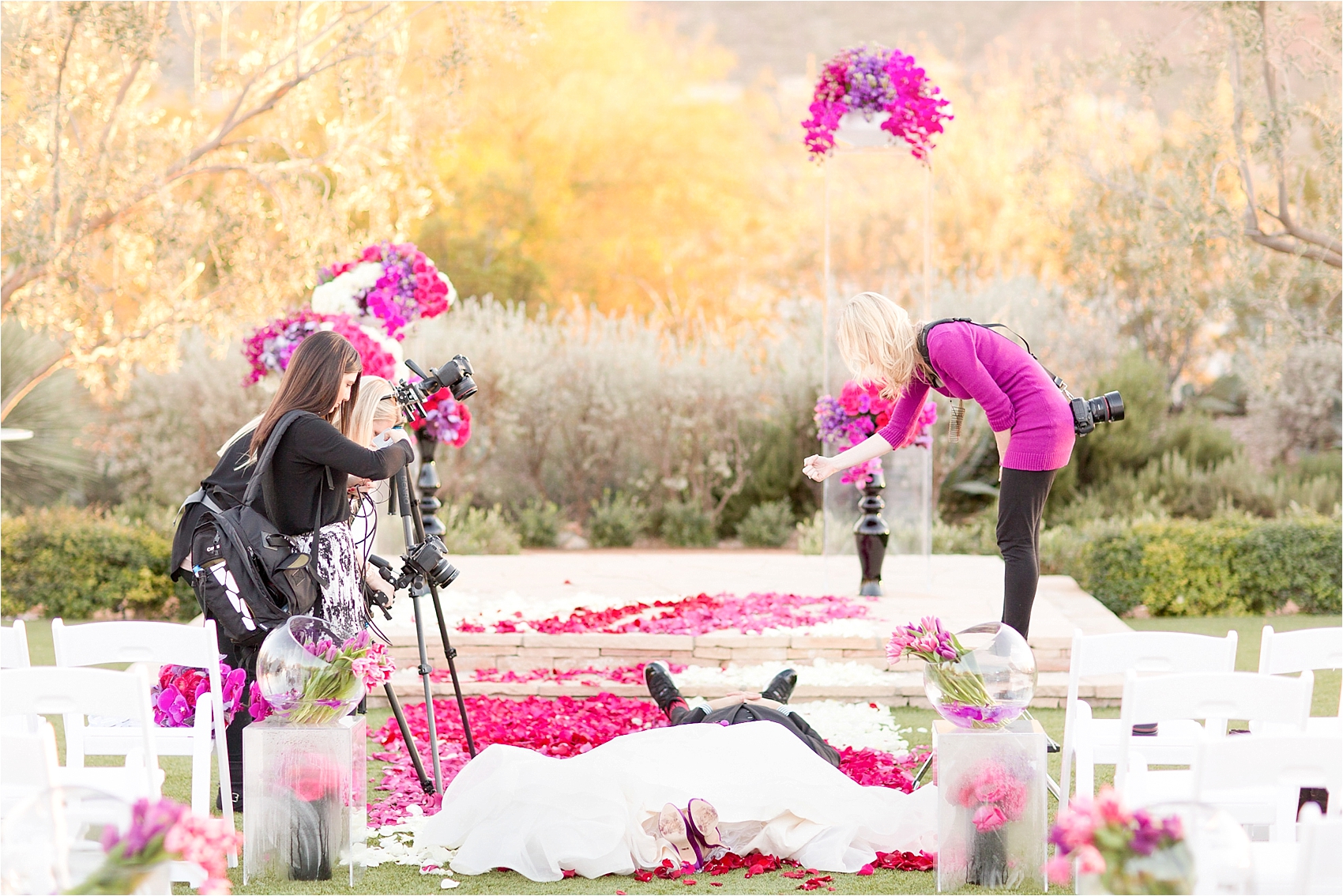
Validate Uncle Bob
Start by taking two seconds in the middle of the chaos to recognize him. Introduce yourself. Ask him, “How do you know that bride and groom?” Then validate his photographerness, “Oh my gosh, you’re a photographer, too? That’s awesome!” Chum it up a little bit, “What do you shoot?” All of that takes 30 seconds. And do you know what normally happens? Uncle Bob normally feels so flattered that you recognized his presence in the first place, that he says something like, “Oh… I’m the bride’s uncle. Her mom is my sister…”
FREEZE. Did you catch that? Uncle Bob is the MOB’s BROTHER. So how we treat him in that moment will either be noticed by the MOB, who’s probably standing around, or will be talked about at a later date. Let’s continue with Uncle Bob…
“Oh, I’m not really a photographer, like you. I just take landscapes… and pictures of wildlife… when I go camping… things like that. I’m not a pro like you.”
Seriously. Uncle Bobs have said things just. like. that. to us. In that one minute interaction, instead of creating an adversary in our mind in a quiet frustration that knocks us off our game or causes us to say something rude in the process, we can use our emotional intelligence (E.Q. like I.Q., the people skillz) and use that to a) put Uncle Bob to work on our team or b) make a joke that lets him know that he’s kinnnda in the way… or could be.
A) Put Him to Work
No joke, at real weddings, in situations just like that, we’ve said things like, “Oh good! Another photographer! Thank God. You’re the only person here I can trust to hold my reflector while I’m shooting. Do you mind? It’ll make the light so much better. It’s so nice to have someone else who understands.”
Then Uncle Bob held the reflector for ten minutes. He felt good. We felt good. The bride and groom felt good. It was a win-win-win.
Maybe it’s not a reflector. It could be anything. Ask him to hold one of your lenses or guard your bag. If it’s a lady friend or Aunt Bob, ask them to stand right behind you, keep an eye on all the ladies’ dresses and let you know if she’s sees something that’s gone awry.
All of those are good ways to genuinely empower Uncle Bob.

B) Make a playful joke to see if he gets the point
So, there is Uncle Bob, standing right next to you, shooting over your shoulder. You didn’t put him to work like you wished you had and now it feels too late and a little awkward. So, while he’s firing away and doing his best Seal Team Six impression, you say playfully with a smile, “Hey, do me a favor. Just make sure that you’re wide enough so they don’t accidentally look at you, or I’ll have a bunch of cross-eyed family members in their wedding album and we’ll both be in trouble! Haha!”
That’s a nice, subtle way of saying, “You’re too close and messing this up. Please step away, sir.” If Uncle Bob has any people skillz himself, he’ll get it.
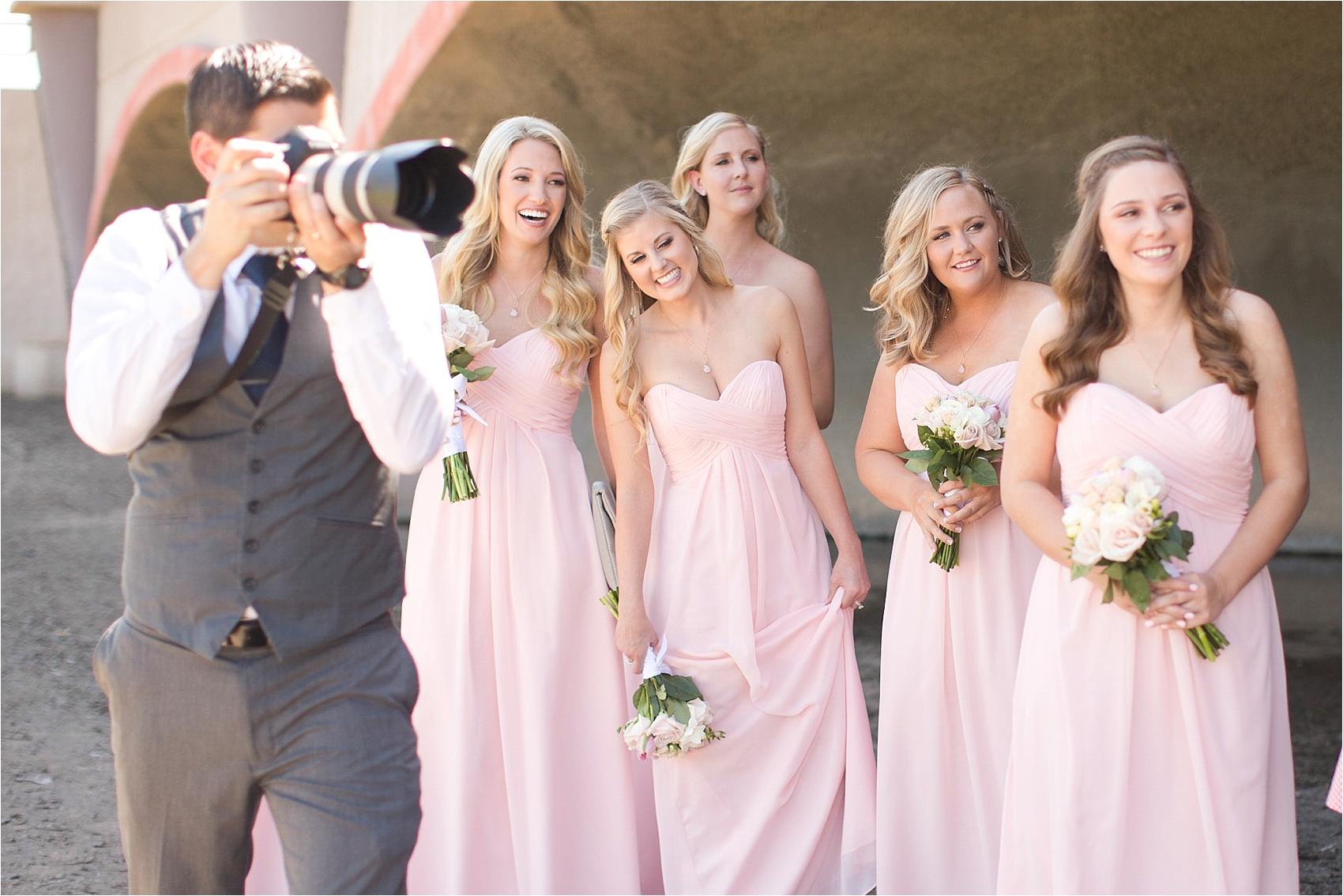
Both of those “low scale” techniques are INFINITELY better than going nuclear right out of the gates, “Excuse me, sir. I’m the only photographer for this wedding today and IN MY CONTRACT with the bride and groom it CLEARLY states that I’m the only one who’s supposed to be taking pictures today, so I need you to stop.”
Do that, and in that moment, everyone will hate you. Including your clients.
Because, remember, you were that excited person with the camera once, too. Would you respond well to a cool, established photographer talking down to you like that?
We wouldn’t. Plus, on a side note, we all need to be a LOT slower on the trigger finger of these words: With attitude and arrogance… “In my contract, it says…” The word “contract” is a nuclear word. It should be a very LAST resort. Not our first instinct. More on that in a future post.
Okay, so now that we’ve covered the low pressure approach, let’s talk about the two highest pressure approaches. Assume Uncle or Aunt Bob is not only not taking the hint, but they’re a bull in a china shop. Stepping in front of you. Posing the clients. Running in and adjusting people’s clothes without being asked. Etcetera.
Pause. Take thirty seconds. Talk to them privately.
When we were elementary school teachers, we learned a very powerful principle: if you have to discipline a child, do it quietly and privately first. Same thing applies here. If you call out Uncle Bob in front of everyone, like a child, it has the potential to embarrass them. Maybe it’ll be fine. But you risk an explosion and risk coming off like an arrogant control freak. Instead, as soon as it happens, just walk over calmly and tell them, “Excuse me, sir. What’s your name? I’m Jordan, one of the photographers. It’s so nice to meet you. Hey, I know you’re trying to help and I really appreciate that, and if we weren’t in such a time crunch, it’d be totally fine, but we’re already running pretty behind and I’ve got this huge shot list to get through, so any time we have to stop for even a second, we run the risk of not getting through all the shots that the bride and groom have requested.”
BOOM. Done. Trust us.
A few things. Uncle Bob is good-hearted and wants the best for the bride and groom, right? So as soon as you communicate that a) you’re running late and b) you’re worried you won’t get through the shots your clients have requested, now Uncle Bob realizes that what he’s doing could hurt the bride and groom –– and he doesn’t want that. He just didn’t know until you told him. So tell him. Kindly, directly and with a gentle, humble heart. Talk to him like a team player with the same goal. Not the opposing team.
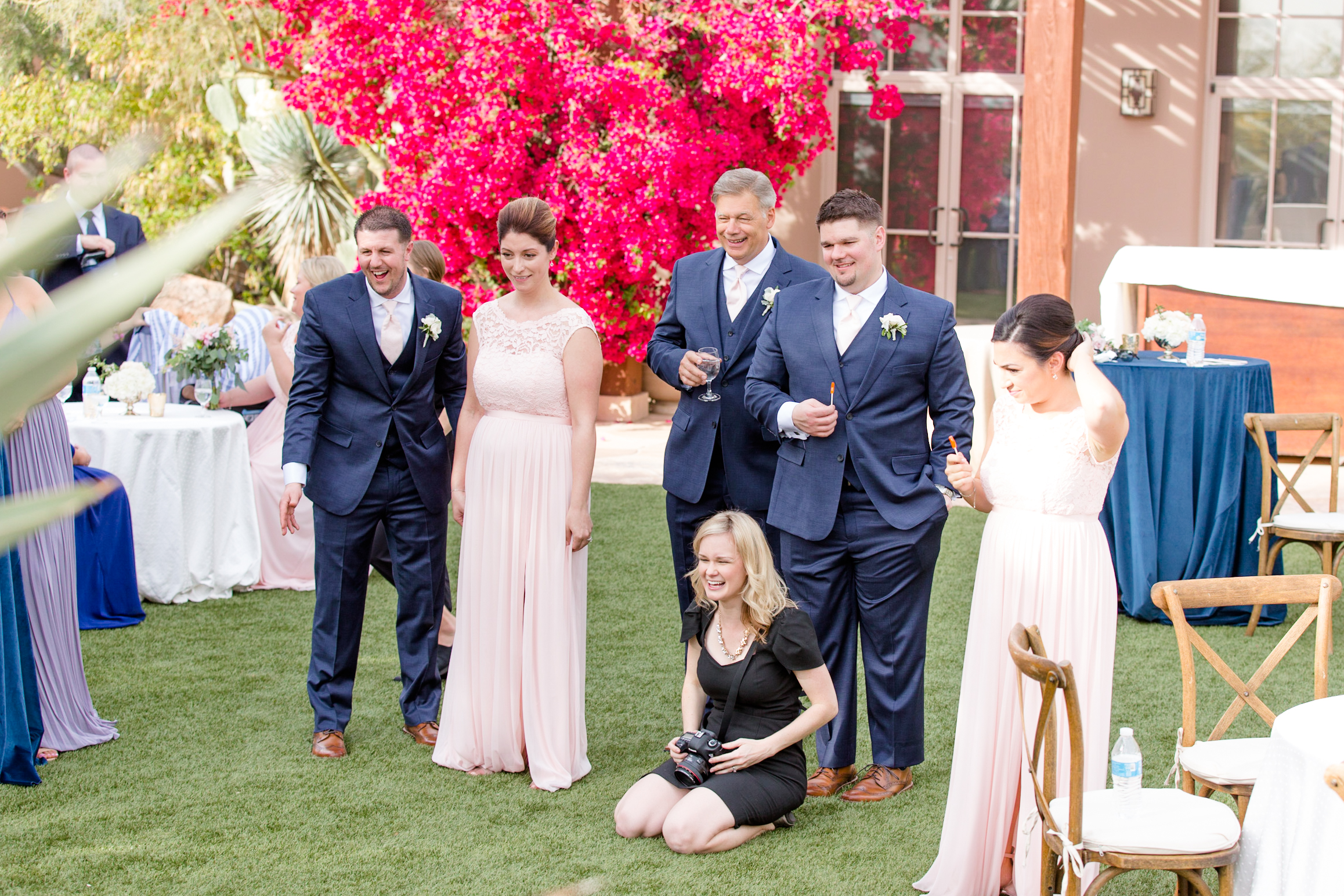
Worst Case Scenario
Okay, worst case scenario. You’ve tried ALL of these less invasive, less pressurized techniques and he doesn’t stop. Or he blows up, starts arguing with you. This would be a very rare scenario. In either of those cases, it’s time for #10 on the scale. Don’t argue with Uncle Bob. You can’t argue with a drunk. Instead pull the groom (or whoever the client is) aside for a second and have a quick, private conversation. Explain what’s going on. Let him know that, if it continues, you won’t be able to complete the shot list. And ask him what HE wants to do. How would HE like to move forward?
Families are much better at dealing with their crazies than you are. So let them.
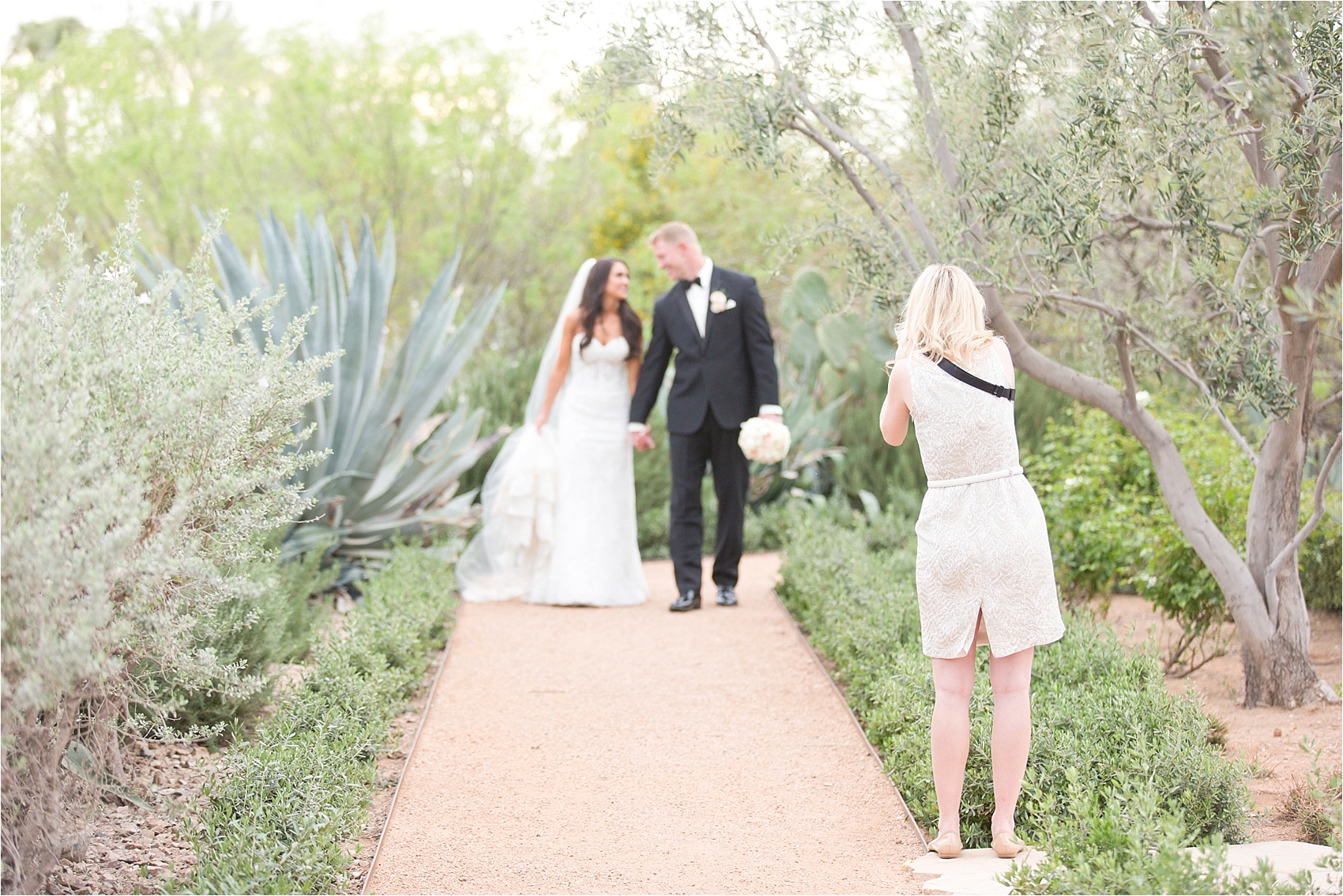
Last thing: be confident and commanding when you’re shooting and posing.
As the old adage goes, dogs and children can smell fear a mile away. If you’re not a presence when you’re directing groups of people, people will assume you’re unsure, insecure and don’t know what you’re doing. Shoulder Stalkers and Scary Sergeants tend to take over when they smell that, too. They tend to back off when you’re (at least outwardly) a controlled, competent, confident professional taking charge.
Remember, your clients chose you for a reason. You are the professional and you’re good at what you do. The way you handle yourself in a stressful situation will stick in your clients’ memories long after their big day has come and gone. Let’s make sure we can all look back on those moments of frustration and feel proud of how we handled ourselves.
Friends, we hope this post empowers you with the tools you need to get a win-win-win (with a smile) the next time you’re faced with the awkward situation of someone shooting over your shoulder or stepping on your toes. Put others first, keep loving and serving people well, and you’ll reap the benefits (both personal and professional) for years to come.
